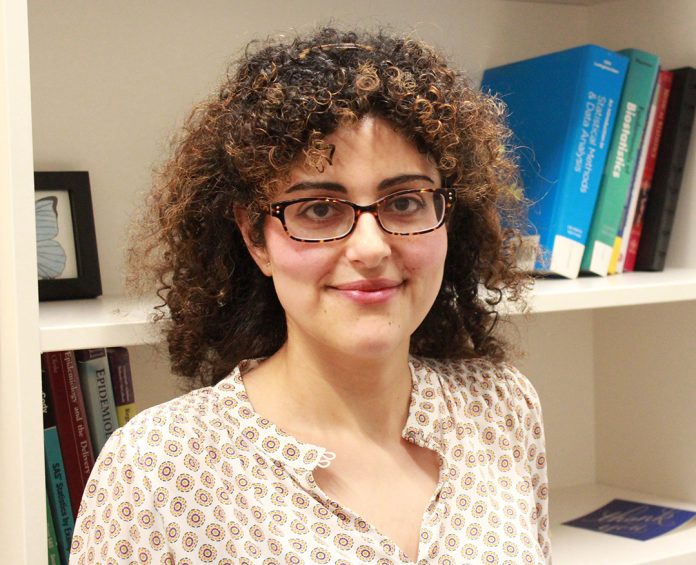As the winter months bring a surge in illnesses, Durham College and Ontario Tech students are feeling the strain of what experts are calling a “quad-demic”—a perfect storm of influenza, COVID-19, RSV and norovirus.
This convergence of viruses is taking a toll on campus life, with more students than usual missing classes and seeking medical help.
Dr. Nooshin Rotondi, associate teaching professor in the Faculty of Health Sciences at Ontario Tech University, explained that the influx of illnesses is a significant challenge, especially in a university or college setting.
“When you have lots of people in indoor spaces with poor ventilation, it’s not surprising that viruses spread easily,” she said, noting that respiratory illnesses like COVID-19 and influenza, along with gastrointestinal viruses like norovirus, have been especially prevalent.
Dr. Rotondi emphasized that while students are generally resilient, those who become ill with these viruses can experience a range of symptoms, from mild fever and coughing to more severe cases requiring medical intervention.
“Some students may recover in a week or two, but others may suffer from complications like pneumonia, making it essential for them to seek care if their symptoms worsen,” she explained.
For international students, who may not be familiar with the healthcare system in Canada, Dr. Rotondi recommends reaching out to campus health centres as a first step for treatment.
“Campus health centres are accessible and provide the support students need and if conditions worsen, they can direct students to walk-in clinics or hospitals for further care.”
In addition to seeking help when ill, Dr. Rotondi stresses the importance of prevention.
Vaccines for influenza and COVID-19 are key tools in reducing the severity of illness.
“Even if you get sick, being vaccinated means you’re likely to experience a milder illness and reduce the risk of spreading it to others,” she said.
However, she also noted that some viruses, like norovirus, do not have vaccines available, making other preventative measures like frequent handwashing and wearing masks even more critical.
“Good hand hygiene is essential, particularly for norovirus,” Dr. Rotondi explained. “Hand sanitizers don’t work as effectively for this virus, so using soap and water is your best defense.”
Wearing a mask can also protect students, especially in crowded spaces and prevent the spread of germs.
Kim Taylor, a registered pharmacy technician at North Oshawa Pharmacy, shared her perspective on flu vaccinations during this time. Although she has seen many seniors seeking flu shots, she noted students aren’t typically among those requesting them.
“Most of the people we see are seniors, but not students,” she said. “There’s a lack of awareness among younger people about where they can get flu shots, like at pharmacies. They may not realize it’s an option for them.”
Taylor emphasized that students should consider getting vaccinated, especially as flu season ramps up.
“Vaccines are available at pharmacies and it’s something students should think about during the flu season,” Taylor said.
Taylor reiterated the importance of vaccination, along with general health practices.
“We encourage getting the flu vaccine, but we don’t typically get questions from students,” she noted. “It’s mostly seniors who are proactive about it because their doctors recommend it every year.”
Sameer Ali, a second-year psychology major at Durham College, had COVID twice this season.
“It was bad. It was not very good. It affected my studying and health because I was not able to go to school. I was stuck in my house and could not do anything other than just stay there in bed or on my desk,” Ali recalled.
“It really impacted my focus and made it hard to keep up with my coursework.”
As the quad-demic continues throughout the winter, Dr. Rotondi suggests that institutions like Durham College and Ontario Tech University take additional measures to protect the campus community.
“Improving ventilation in classrooms and providing hand sanitizers and masks at key points across campus could go a long way in limiting the spread of these viruses,” she said.
For students who feel unwell, Dr. Rotondi offers this advice: “If you’re sick, stay home. Seek care when necessary and ensure you’re following proper hygiene practices to protect both yourself and your peers.”
With the quad-demic putting pressure on campus health services, Durham College students can take proactive steps to safeguard their health and the health of others by following basic hygiene practices, staying home when sick and getting vaccinated.
By doing so, they can help mitigate the spread of illness and ensure a safer, healthier campus environment.




